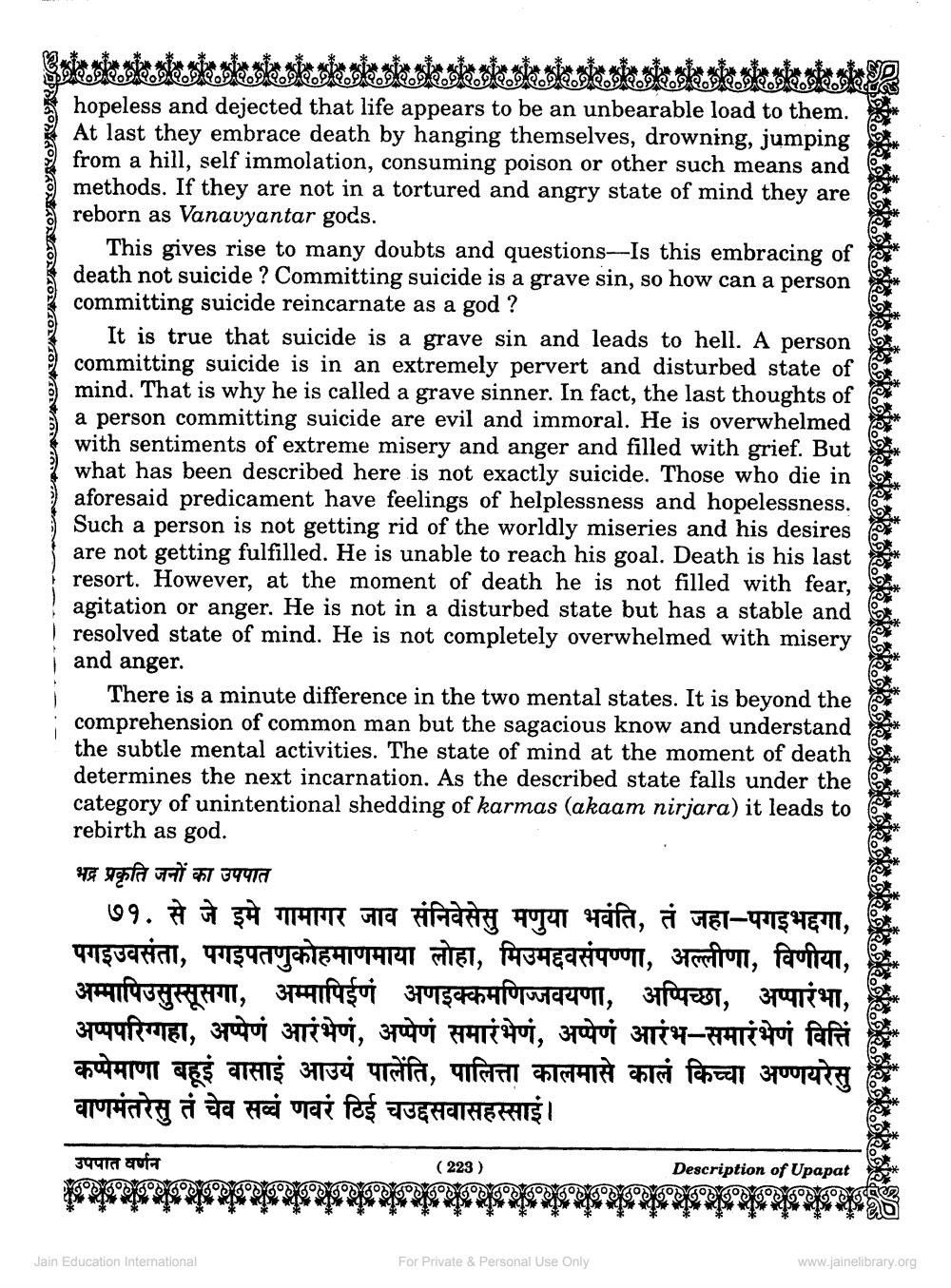________________
hopeless and dejected that life appears to be an unbearable load to them. At last they embrace death by hanging themselves, drowning, jumping from a hill, self immolation, consuming poison or other such means and methods. If they are not in a tortured and angry state of mind they are reborn as Vanavyantar gods.
This gives rise to many doubts and questions-Is this embracing of death not suicide? Committing suicide is a grave sin, so how can a person committing suicide reincarnate as a god?
It is true that suicide is a grave sin and leads to hell. A person committing suicide is in an extremely pervert and disturbed state of mind. That is why he is called a grave sinner. In fact, the last thoughts of a person committing suicide are evil and immoral. He is overwhelmed with sentiments of extreme misery and anger and filled with grief. But what has been described here is not exactly suicide. Those who die in aforesaid predicament have feelings of helplessness and hopelessness. Such a person is not getting rid of the worldly miseries and his desires are not getting fulfilled. He is unable to reach his goal. Death is his last resort. However, at the moment of death he is not filled with fear, agitation or anger. He is not in a disturbed state but has a stable and resolved state of mind. He is not completely overwhelmed with misery and anger.
There is a minute difference in the two mental states. It is beyond the comprehension of common man but the sagacious know and understand the subtle mental activities. The state of mind at the moment of death determines the next incarnation. As the described state falls under the category of unintentional shedding of karmas (akaam nirjara) it leads to rebirth as god.
भद्र प्रकृति जनों का उपपात
७१. से जे इमे गामागर जाव संनिवेसेसु मणुया भवंति, तं जहा - पगइभद्दगा, पगइउवसंता, पगइपतणुकोहमाणमाया लोहा, मिउमद्दवसंपण्णा, अल्लीणा, विणीया, अम्मापिउसुस्सूसगा, अम्मापिईणं अणइक्कमणिज्जवयणा, अप्पिच्छा, अप्पारंभा, अप्पपरिग्गहा, अप्पेणं आरंभेणं, अप्पेणं समारंभेणं, अप्पेणं आरंभ - समारंभेणं वित्तिं कप्पेमाणा बहूइं वासाई आउयं पालेंति, पालित्ता कालमासे कालं किच्चा अण्णयरेसु वाणमंतरेसु तं चैव सव्वं णवरं ठिई चउद्दसवासहस्साइं ।
उपपात वर्णन
Jain Education International
(223)
For Private & Personal Use Only
Description of Upapat
www.jainelibrary.org




